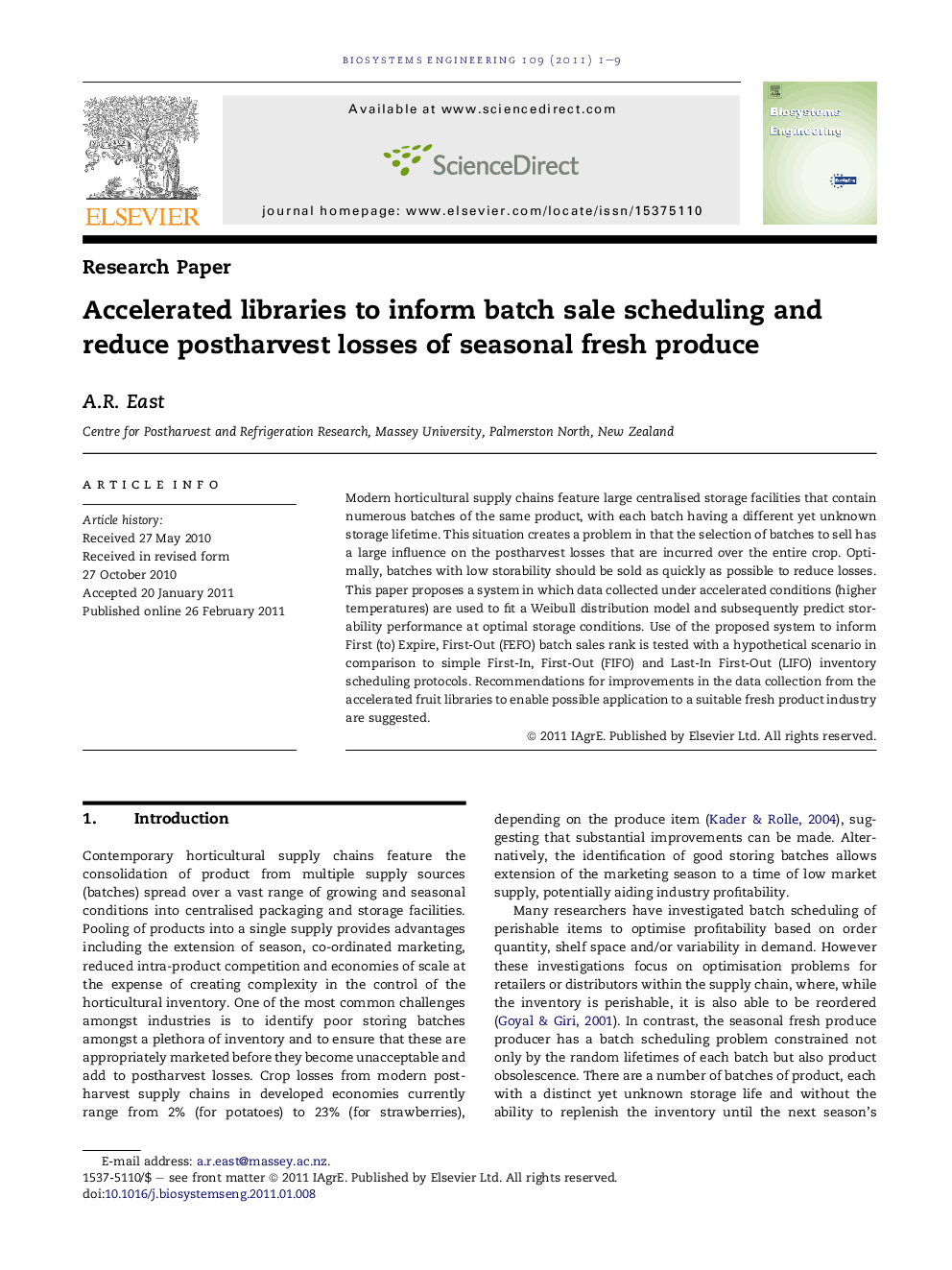| Article ID | Journal | Published Year | Pages | File Type |
|---|---|---|---|---|
| 1711802 | Biosystems Engineering | 2011 | 9 Pages |
Modern horticultural supply chains feature large centralised storage facilities that contain numerous batches of the same product, with each batch having a different yet unknown storage lifetime. This situation creates a problem in that the selection of batches to sell has a large influence on the postharvest losses that are incurred over the entire crop. Optimally, batches with low storability should be sold as quickly as possible to reduce losses. This paper proposes a system in which data collected under accelerated conditions (higher temperatures) are used to fit a Weibull distribution model and subsequently predict storability performance at optimal storage conditions. Use of the proposed system to inform First (to) Expire, First-Out (FEFO) batch sales rank is tested with a hypothetical scenario in comparison to simple First-In, First-Out (FIFO) and Last-In First-Out (LIFO) inventory scheduling protocols. Recommendations for improvements in the data collection from the accelerated fruit libraries to enable possible application to a suitable fresh product industry are suggested.
► Fitted parameters correlate well (R2 = 0.77) with observed losses. ► Flexibility of model allows adaptation to new locations. ► Use of accelerated fruit library data may result in reduced postharvest losses.
